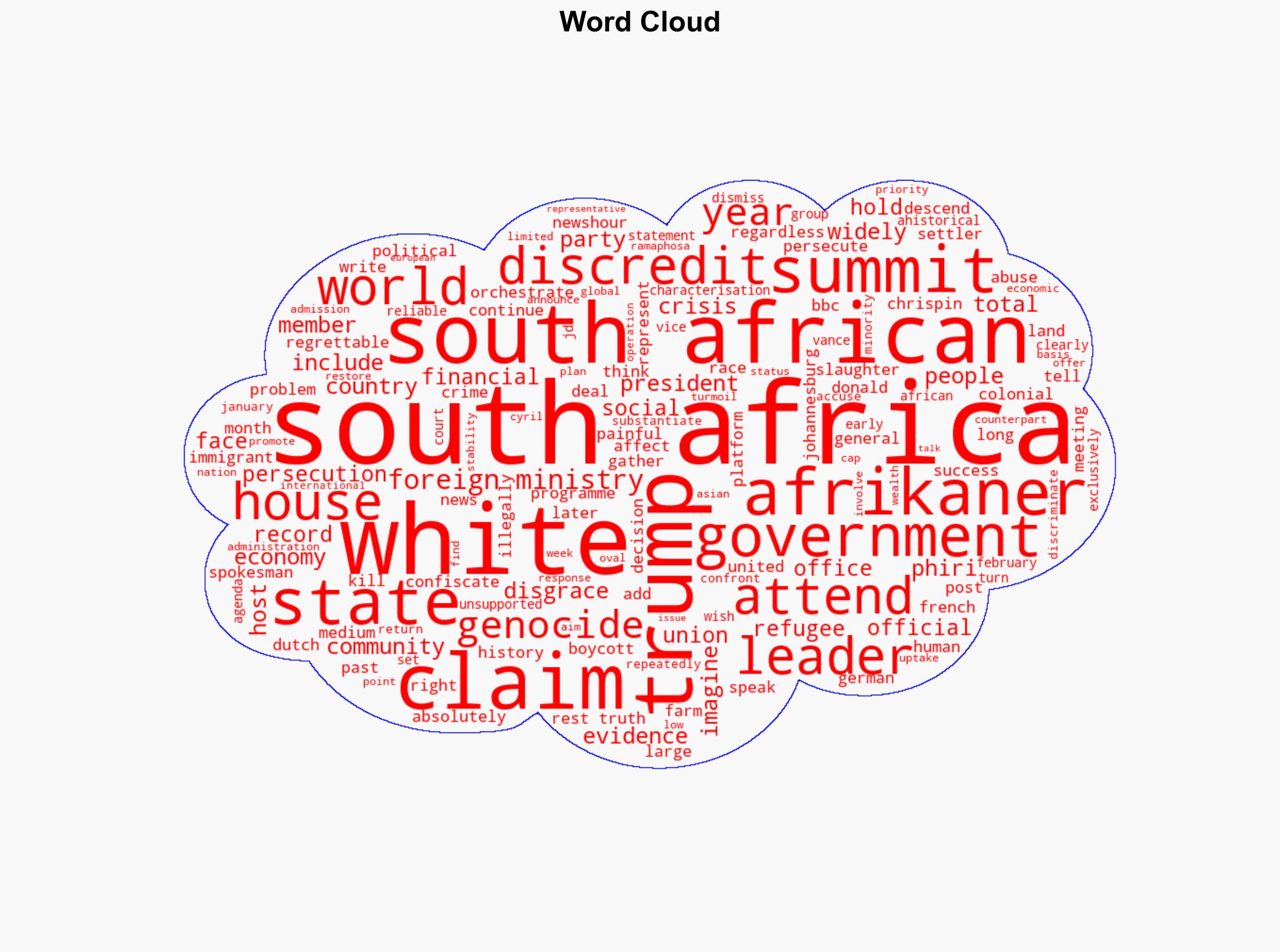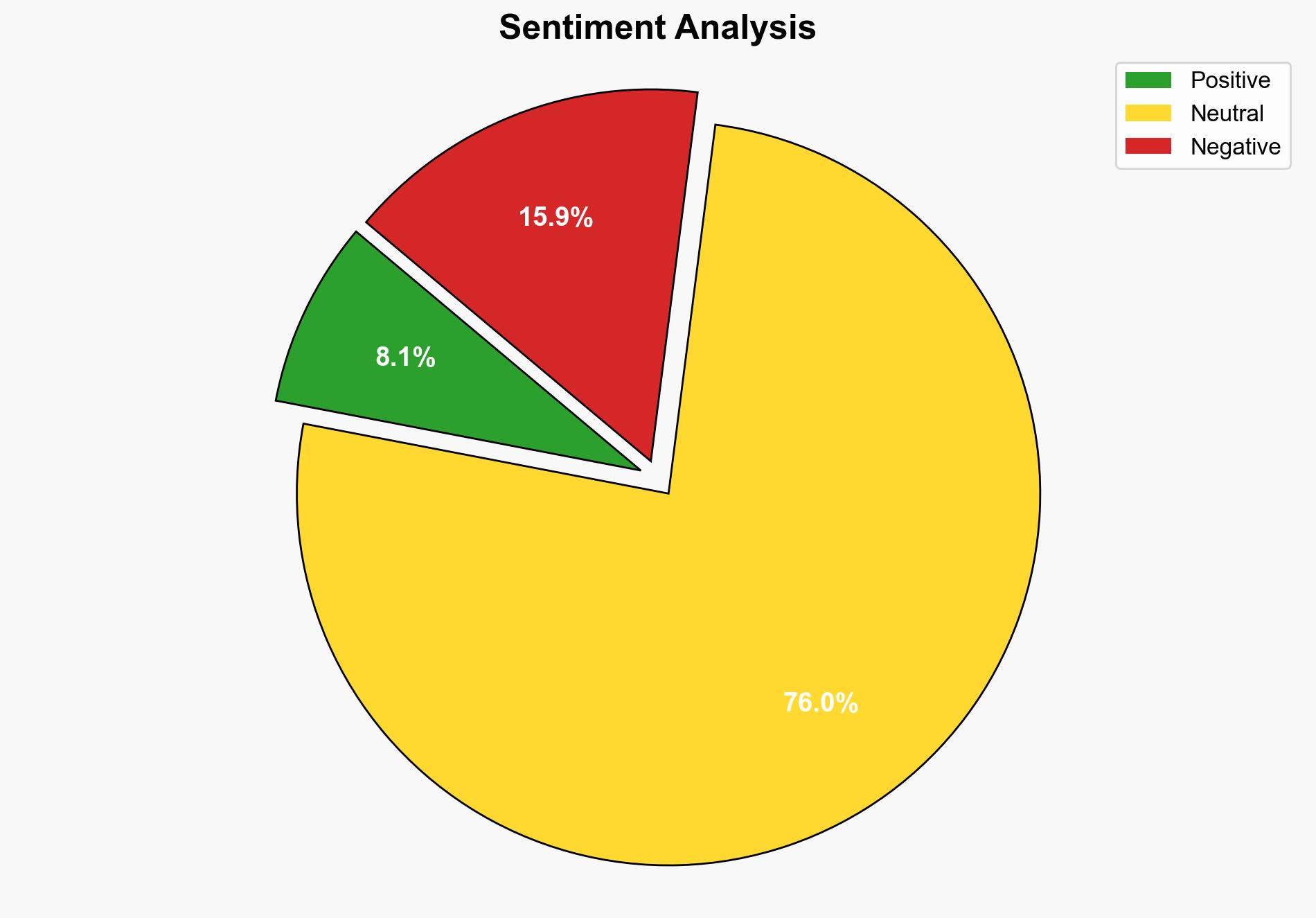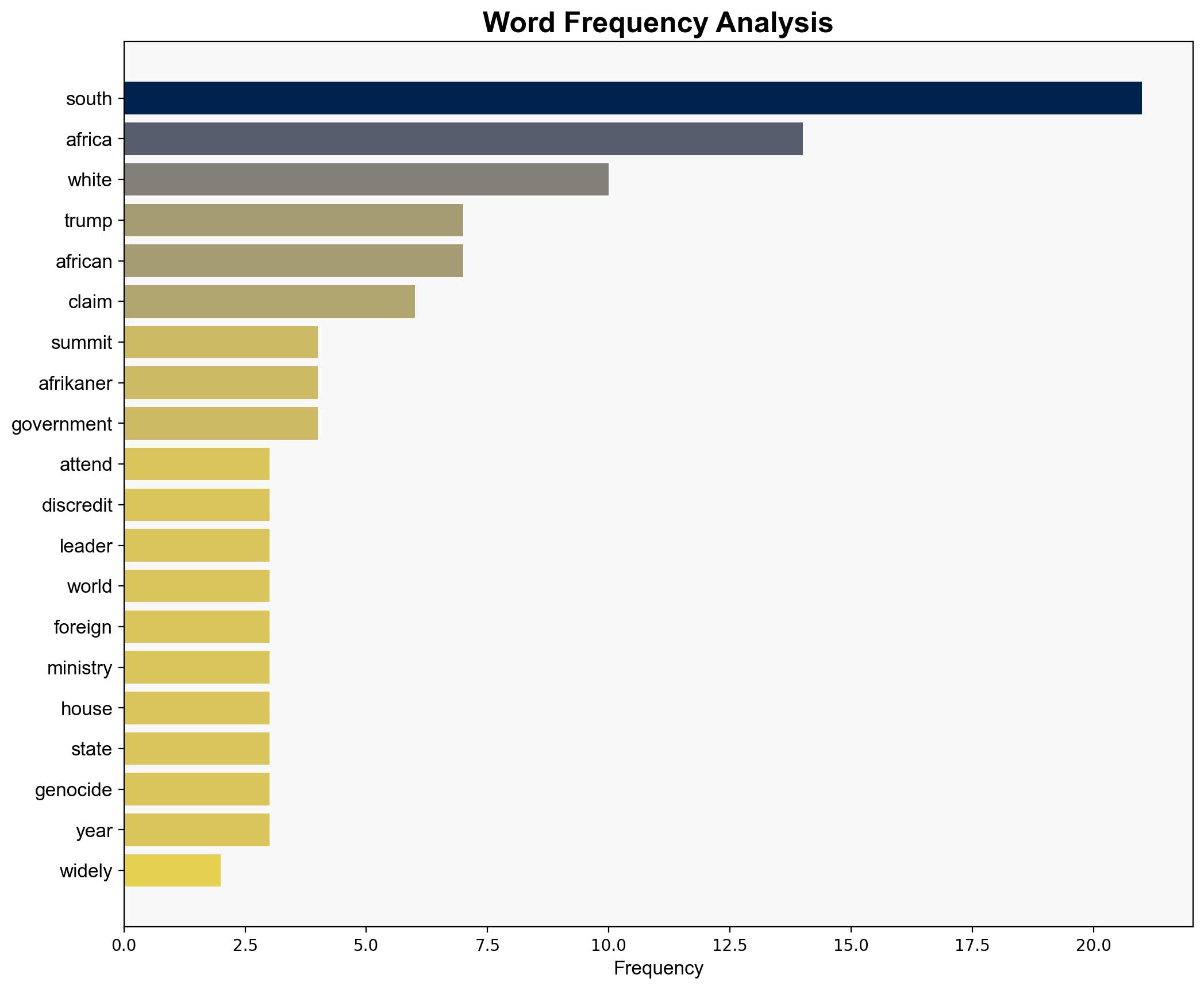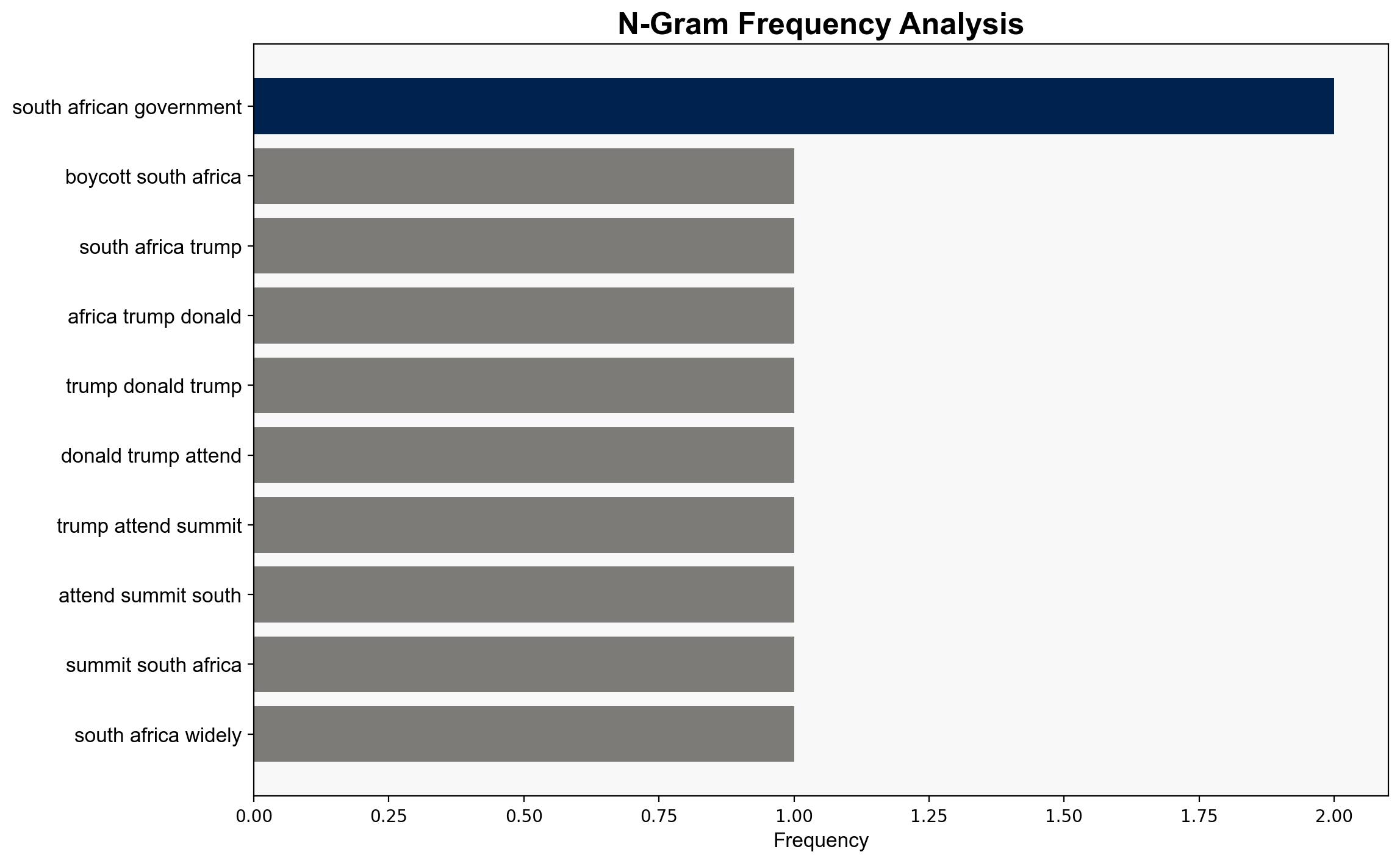US to boycott G20 in South Africa Trump says – BBC News
Published on: 2025-11-08
Intelligence Report: US to boycott G20 in South Africa Trump says – BBC News
1. BLUF (Bottom Line Up Front)
The most supported hypothesis is that the US boycott of the G20 in South Africa is primarily driven by domestic political considerations and Trump’s personal agenda rather than a substantiated concern over human rights abuses. Confidence level: Moderate. Recommended action is to engage in diplomatic dialogue to clarify intentions and mitigate potential geopolitical tensions.
2. Competing Hypotheses
1. **Hypothesis 1**: The US boycott is a strategic move by Donald Trump to highlight alleged human rights abuses against white South Africans, aligning with his previous statements and actions.
2. **Hypothesis 2**: The boycott is primarily motivated by domestic political considerations, using the G20 platform to appeal to Trump’s political base by emphasizing issues that resonate with them, such as perceived discrimination against white populations.
Using the Analysis of Competing Hypotheses (ACH) 2.0, Hypothesis 2 is better supported given the lack of credible evidence for widespread persecution and the historical context of Trump’s statements and actions, which often align with his political narratives.
3. Key Assumptions and Red Flags
– **Assumptions**: It is assumed that Trump’s statements are primarily politically motivated rather than based on verified intelligence.
– **Red Flags**: The claim of genocide lacks credible evidence and has been widely discredited. The narrative may be used to manipulate public perception.
– **Blind Spots**: Potential lack of insight into the internal deliberations within the US administration regarding the boycott decision.
4. Implications and Strategic Risks
– **Geopolitical Risks**: The boycott could strain US-South Africa relations and impact broader US-Africa diplomatic engagements.
– **Economic Risks**: Potential disruptions in economic cooperation and trade relations between the US and South Africa.
– **Psychological Impact**: The narrative of persecution could exacerbate racial tensions within South Africa and influence international perceptions.
5. Recommendations and Outlook
- Engage in diplomatic discussions with South African officials to address concerns and clarify the US position.
- Monitor domestic political developments in the US that may influence foreign policy decisions.
- Scenario Projections:
- Best Case: Diplomatic engagement leads to a resolution and participation in the G20 summit.
- Worst Case: Escalation of tensions leads to broader geopolitical fallout and economic repercussions.
- Most Likely: Continued diplomatic tensions with limited impact on broader US-Africa relations.
6. Key Individuals and Entities
– Donald Trump
– Chrispin Phiri
– Cyril Ramaphosa
7. Thematic Tags
national security threats, geopolitical relations, domestic politics, international diplomacy





